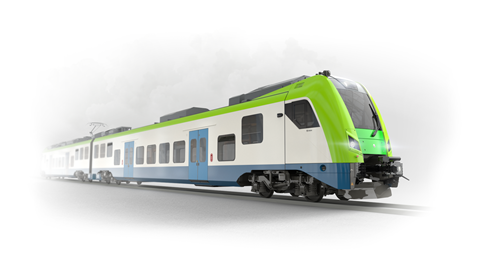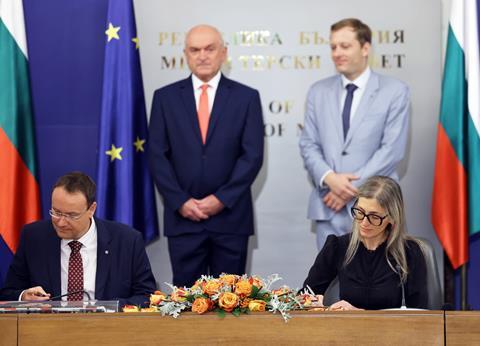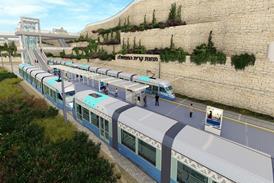
BULGARIA: The Ministry of Transport & Communications has signed a contract for Škoda Group to supply 20 four-car 160 km/h electric-multiple units for use on long distance services from Sofia to Burgas, Varna and Ruse.
The 25 kV AC 50 Hz EMUs from the Czech manufacturer’s RegioPanter family will have more than 300 seats, air-conditioning, wi-fi, ETCS and internal and external CCTV. They will be partially low-floor for accessibility, with low-height boarding, 1 500 mm wide doors and multifunctional areas for disabled travellers, prams and bicycles.
Delivery is scheduled within 24 months, and the manufacturer will provide full servicing for 15 years and train local staff. There are options to order five more EMUs.

‘Today, with the signing of this contract, we are taking a huge step towards the renewal of the Bulgarian railway’, said recently-appointed Minister of Transport & Communications Krasimira Stoyanova on September 4. ‘I wish the contractor’s representatives success, honesty and compliance with the delivery deadline. I sincerely hope that very soon we will be greeted with more contracts for new rolling stock and equipment financed under the National Recovery & Resilience Plan.’
Škoda had offered a price of 511·4m leva, beating the BUL20EMU consortium of Alstom and RVP Invest which bid 659m leva.
Škoda Group CEO and Executive Chairman Petr Novotný said the company’s experience had enabled it to offer a proven design used in several countries. ‘Nearly 400 of our modern electric units will soon be on European railways’, he said. ‘Winning this order confirms that our products can compete internationally and at the same time strengthens our position in the modernisation of European rail transport.’
Problematic procurements
Separately, a number of other Bulgarian rolling stock procurements have run into problems. Issues include tight timescales, with the requirement for Recovery & Resilience Plan funds to be spent by August 2026.
In July, preferred bidder Stadler Polksa dropped out of the running for a contract to supply 35 EMUs within 28 months, with second ranked bidder Pesa Bydgoszcz taking its place in the negotiations.
The ministry said efforts had been made to reach an agreement with Stadler, which had bid 642·5m leva, but the supplier had wanted significant changes.
Alstom and Škoda had also made proposals under the negotiated procedure, which was launched after a previous open call attracted just two bids, both of which were deemed non-compliant.
Stadler also withdrew from a separate 301m leva contract signed in April which covered the supply and maintenance of seven double-deck 200 km/h EMUs, with options for three more. The initial tender was cancelled in January after sole bidder Vossloh Rolling Stock, which is owned by China’s CRRC, could not meet the required timescale.
In March, CRRC Qingdao Sifang Locomotive withdrew a bid for a contract to supply 20 push-pull inter-city trainsets. This came after the European Commission launched an investigation into whether the Chinese state-owned company might have benefited from an unfair subsidy enabling to offer a much lower price than rival bidder Talgo. The Spanish firm was unable to meet the required delivery timescales, and the procurement was subsequently cancelled.

















